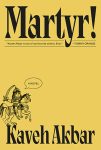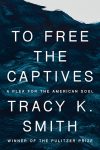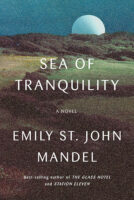
Review by Kevin Brown
Throughout Mengestu’s writing career, he has created characters who have trouble connecting with others, who have some sort of distance from others and themselves. Usually, that breakdown in relationships comes from their lack of recognition of the trauma they’ve suffered, frequently from their experience as refugees or immigrants.
Someone Like Us, his latest novel is no different, as he tells the story of Mamush, a journalist living in Paris with his wife Hannah, with whom he has a young son. However, Mamush spends almost the entire novel traveling to Washington, DC, where he grew up, reflecting on his life with his mother and Samuel, a father figure who might also be his father.
Mamush and Hannah’s marriage is on the verge of collapsing. Their son suffers from some ailment that has sapped his energy and seems to be taking his life from him. Whenever Mamush leaves home, Hannah wonders if he will come back. Similarly, Mamush’s career as a journalist has effectively ended. He became known for writing stories about immigrants from Africa, but those stories were always about tragedies that happened to them, not successes they had.
Samuel and Mamush’s mother have a complicated past that involves living in Europe, as well as Chicago, where they both were arrested, before moving to Washington, DC. However, neither of them will talk about it, and Mamush is unable to discover what happened. Like Mamush, Samuel seems incapable of building true relationships.
Near the end of the novel, Mengestu merges the past and present, questioning even the reliability of the story Mamush and Samuel have been telling. When one has been through trauma, stories become unreliable, but they also become the only thing one has to hold onto. Mengestu gives the reader one more such story, leaving it open to the reader to find hope in the midst of loss.
Someone Like Us by Dinaw Mengestu. Alfred A. Knopf, July 2024.
Reviewer bio: Kevin Brown has published three books of poetry: Liturgical Calendar: Poems (Wipf and Stock); A Lexicon of Lost Words (winner of the Violet Reed Haas Prize for Poetry, Snake Nation Press); and Exit Lines (Plain View Press). He also has a memoir, Another Way: Finding Faith, Then Finding It Again, and a book of scholarship, They Love to Tell the Stories: Five Contemporary Novelists Take on the Gospels. Twitter @kevinbrownwrite









